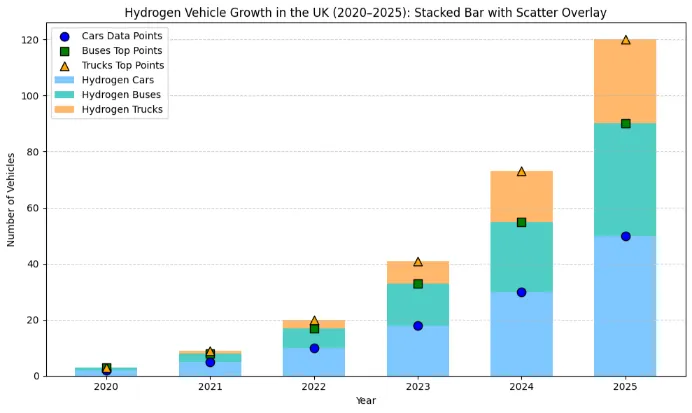
Hydrogen Fuels UK: The Future of Sustainable Transport and Green Mobility
Hydrogen fuels UK is rapidly emerging as a cornerstone of the nation’s strategy to decarbonize transportation, drive economic growth, and secure energy independence. As the world seeks sustainable alternatives to fossil fuels, the UK is positioning itself at the forefront of hydrogen innovation, setting ambitious targets for a greener, cleaner future.
What Is Hydrogen Fuels UK?
Hydrogen fuels UK refers to the production, distribution, and application of hydrogen as a clean energy source across the United Kingdom’s transport sectors. Unlike conventional fuels, hydrogen emits only water vapor when used in fuel cells, making it a zero-emission solution ideal for road, rail, aviation, and maritime industries.
Why Hydrogen? The Case for Fuels UK
The UK’s commitment to net-zero emissions by 2050 has accelerated the search for scalable, sustainable fuel alternatives. Hydrogen fuels UK offers several compelling advantages:
- Near-zero greenhouse gas emissions: Hydrogen-powered vehicles emit only water, drastically reducing air pollution and carbon footprint.
- Energy security: By producing hydrogen domestically, the UK can reduce reliance on imported oil and fossil fuels.
- Economic growth: Investment in hydrogen technologies could add up to £26bn to the UK economy by 2050 through global sales and job creation.
- Integration with renewables: Hydrogen can store excess renewable energy, balancing supply and demand and curtailing waste.
Current State of Hydrogen Fuels UK
Government and industry partnerships are driving the rollout of hydrogen infrastructure and vehicles. The UKH2Mobility project, for example, has mapped out a roadmap for hydrogen fuel cell electric vehicles (FCEVs) and refuelling stations, aiming for over 1.5 million hydrogen-powered vehicles on UK roads by 2030.
Key Sectors Benefiting from Hydrogen Fuels UK
Road Transport
Hydrogen FCEVs are gaining traction for their fast refuelling times and long ranges. By 2050, up to half of UK light-duty vehicles could be powered by hydrogen, significantly cutting emissions from one of the largest polluting sectors.
Aviation
The Hydrogen in Aviation (HIA) alliance is working to make the UK a leader in hydrogen-powered flight. With strong public support and major industry players involved, hydrogen is seen as the best path to decarbonize short-haul flights, with new aircraft models targeting commercial service by 2035.
Maritime
Projects like the RESTORE initiative are retrofitting vessels with hybrid hydrogen-battery propulsion systems, demonstrating real-world emission reductions and paving the way for greener shipping operations.
Rail
The HydroFLEX project has successfully tested the UK’s first hydrogen-powered passenger train, showing the flexibility and potential for hydrogen to decarbonize rail networks.
Overcoming Challenges for Hydrogen Fuels UK
Despite its promise, hydrogen adoption faces hurdles:
- Infrastructure gaps: Only a quarter of public transport operators have access to permanent hydrogen fuelling, highlighting the need for more refuelling stations.
- Storage and distribution: Safe, scalable hydrogen storage remains a challenge, with decentralized electrolysis and mobile refuelling units offering interim solutions.
- Cost: The initial investment for hydrogen vehicles and infrastructure is high, but costs are projected to fall as technology matures and scales.
The Roadmap Ahead
The UK government’s hydrogen strategy emphasizes collaboration between industry, academia, and policymakers to accelerate innovation, standardize regulations, and expand infrastructure. Mobile refuelling stations and local electrolysers are bridging the gap while permanent networks are developed.
Economic and Environmental Benefits
Adopting hydrogen fuels UK promises:
- Cleaner air and healthier communities
- Job creation in engineering, manufacturing, and research
- A resilient, future-proof energy system
Case Studies: Fuels UK in Action
Road: Toyota and Hyundai are rolling out FCEVs in UK cities, supported by a growing network of hydrogen refuelling stations.
Rail: The HydroFLEX train demonstrates zero-emission travel on existing rail lines.
Maritime: Newcastle University’s Princess Royal vessel showcases hybrid hydrogen-battery propulsion for offshore support.
Aviation: ZeroAvia and Universal Hydrogen are conducting flight tests, moving closer to commercial hydrogen-powered flights.
Government Policy and Support
The UK government is investing in hydrogen R&D, offering grants, and setting standards to ensure safety and interoperability across sectors. Public-private partnerships are central to scaling up hydrogen mobility and infrastructure.
Innovations in Storage and Distribution
Advances in mobile and decentralized hydrogen production, storage, and refuelling are making hydrogen more accessible and affordable for transport operators and consumers alike.
Integrating Hydrogen with Renewables
Hydrogen fuels UK is uniquely positioned to complement renewable energy, storing surplus wind and solar power for use in transport and other sectors, thus maximizing the value of the UK’s clean energy assets.
Addressing Safety, Cost, and Market Acceptance
Ongoing research and pilot projects are addressing safety concerns, driving down costs, and building public confidence in hydrogen as a mainstream transport fuels.
- Processes | MDPI: Article 11(9):2730 – Peer-reviewed research article from MDPI’s Processes journal.
- Hydrogen vehicles and mobility | Allianz UK – Insightful overview of hydrogen as an energy carrier and its role in mobility and transport sectors.